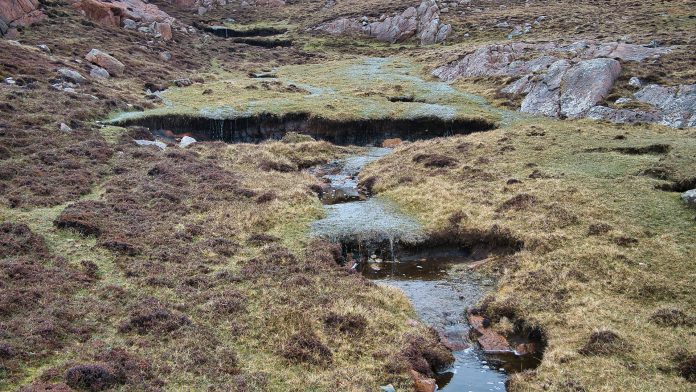Mitigating the effects of climate change and safeguarding biodiversity with more than £16m of funding through Natural England’s Peat Restoration Grants.
The Department for Environment, Food & Rural Affairs and Natural England have announced that over £16m will be awarded through the first round of Natural England’s Peat Restoration Grants in efforts to combat the effects of climate change.
The restoration of England’s peatland
Under these bold propositions that have been launched today (Friday 27 August), thousands of hectares of essential peatland will be restored.
Five novel landmark projects will be implemented to ensure England’s peatlands return to a natural and healthy state through the government’s Nature for Climate Peatland Grant Scheme.
The project areas being funded include: Northumberland – restoring 827 hectares of peatland on nine closely connected sites in the Border Mires; Lancashire and Cumbria – with restoration work on 16 degraded lowland raised bog sites stretching from Merseyside up to the Scottish border; Greater Manchester – The RSPB, in corporation with United Utilities, will deliver a peatland restoration project that aims to restore degraded blanket bog on their partnership site at Dove Stone; Cornwall, Devon and Somerset – this project will restore some of the UK’s most southerly blanket bogs on a total of 42 sites; and Yorkshire, Manchester and Durham – this project will deliver 3,510 hectares of peatland restoration in the Yorkshire Dales and North York Moors National Parks as well as the Nidderdale and North Pennines Areas of Natural Beauty.
The government plans to spend over £50m on peat restoration, developing on its commitment to reestablish around 35,000 hectares of peatland in England by the end of this Parliament.
A vital habitat and crucial carbon trapper
The peatlands are England’s greatest on-land carbon stores, and thus they play a crucial role in trapping carbon. As well as thus, peat offers a wide range of benefits, including enhancing ecosystems and biodiversity, better water quality and natural flood management.
However, currently, merely 13% of England’s peatlands are in a near-natural state. These newly proposed projects, therefore, represent an important step towards attaining the goal of reversing the decline of England’s peatlands.
Environment Minister Rebecca Pow explained: “Our peatlands are remarkable habitats which provide homes for many precious species and hold enormous amounts of carbon. By restoring 35,000 ha of damaged and degraded peatlands in England, 9 million tonnes of carbon dioxide would be prevented from being released by 2050, which would make a significant contribution to combatting the devastating impacts of climate change and biodiversity loss.
“The projects being awarded funding today will bring about much-needed peatland restoration across the country. We have committed to triple our historic average annual peat restoration figures and these landscape-scale projects will provide a great contribution to achieving this and accessing the wealth of benefits healthy peatlands offer.”
Natural England Chair Tony Juniper added: “Our peatlands exemplify the multiple benefits society can reap from healthy natural systems. They store a vast quantity of carbon captured from the atmosphere by plants living long ago; they purify and store water, enabling rivers to run steady and clear while at the same time reducing flood risk.
“They are also wonderful wildlife habitats, supporting some of our most iconic species, and peat covers some of our most beautiful landscapes, including in the National Parks that we hope even more people will enjoy during the years ahead. By restoring peatlands, we can protect and increase all of these valuable benefits.”
The second round of Peatland Restoration Grant applications is due to be launched in early 2022.
I am delighted to see grants being awarded to ambitious and extensive proposals to restore the integrity and quality of peat systems across large landscape areas, contributing to a wider Nature Recovery Network. I am looking forward to seeing how the projects get started and progress.







